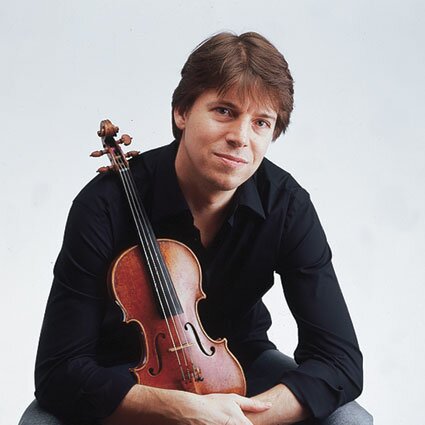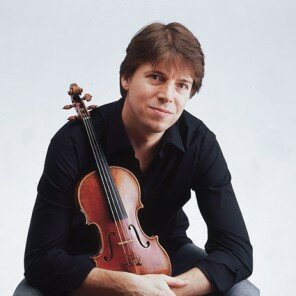Bach is everywhere these days. Good ol’ Johann Sebastian’s music can be found in concert halls, films, ringtones, and even in outer space. How did a 17th century German composer become such a ubiquitous cultural figure in our 21st century world? In his new book Reinventing Bach, author Paul Elie discusses the many ways Bach’s music has influenced modern society and the many ways technology has impacted our experience of Bach’s works. On Monday, Elie, a senior fellow at Georgetown University’s Berkeley Center for Religion, Peace, and World Affairs, visited Town Hall to speak about these ideas, interweaving passages from his book with musical examples and anecdotes from his personal odyssey with Bach.

The story of Bach’s music in the 20th century is the story of audio technology and how it has changed the way we experience music. Elie explained these technological developments and their effects through the stories of key musical figures and their relationship with Bach. Much of his presentation was devoted to illuminating the lives of legendary musicians Pablo Casals, Glenn Gould, and Leopold Stokowski while examining how each used the technology of the day to experience Bach’s music.
One of the greatest cellists of the 20th century, Casals was one of the first musical pioneers to experiment with recording technology in the 1920s and 30s. Pianist Gould, born a generation after Casals, grew up surrounded by musical recordings and actually preferred them to live performances. Thanks to Stokowski, a renowned conductor in the classical music world and in Hollywood, Bach’s music became a staple in film soundtracks.
Elie’s stories and musical examples paint a picture of technology as a friendly, helpful force that’s rescued the music of Bach from obscurity by making it available to a much wider audience. He argues that musicians throughout the 20th century have consistently found a way to utilize the latest technological advances while remaining true to the spirit of Bach and his music.
Despite today’s debates about illegal music downloading, crowd-sourcing back-up bands, and the CD versus mp3 battle, it’s nice to take a step back and appreciate Elie’s big picture ideas. Thanks to recording technology, millions of people around the world have access to a wealth of different interpretations of Bach’s music. Whereas Bach could only hear his own compositions when he could muster the musicians to perform them, today’s listeners can take the composer’s music with them everywhere they go.
Elie may have been preaching to the choir on Monday — the majority of the Town Hall audience seemed to be classical music fans. Yet his talk still presented plenty of obscure facts that even the most seasoned Bach aficionado could appreciate. Meanwhile, Elie’s emphasis on storytelling and anecdotes made his lecture engaging and appealing to a wider audience. Based on the passages read from the book during his talk, Elie’s Reinventing Bach seems to have something for everyone, whether you’ve heard Bach’s Cello Suites one time or one hundred times.

